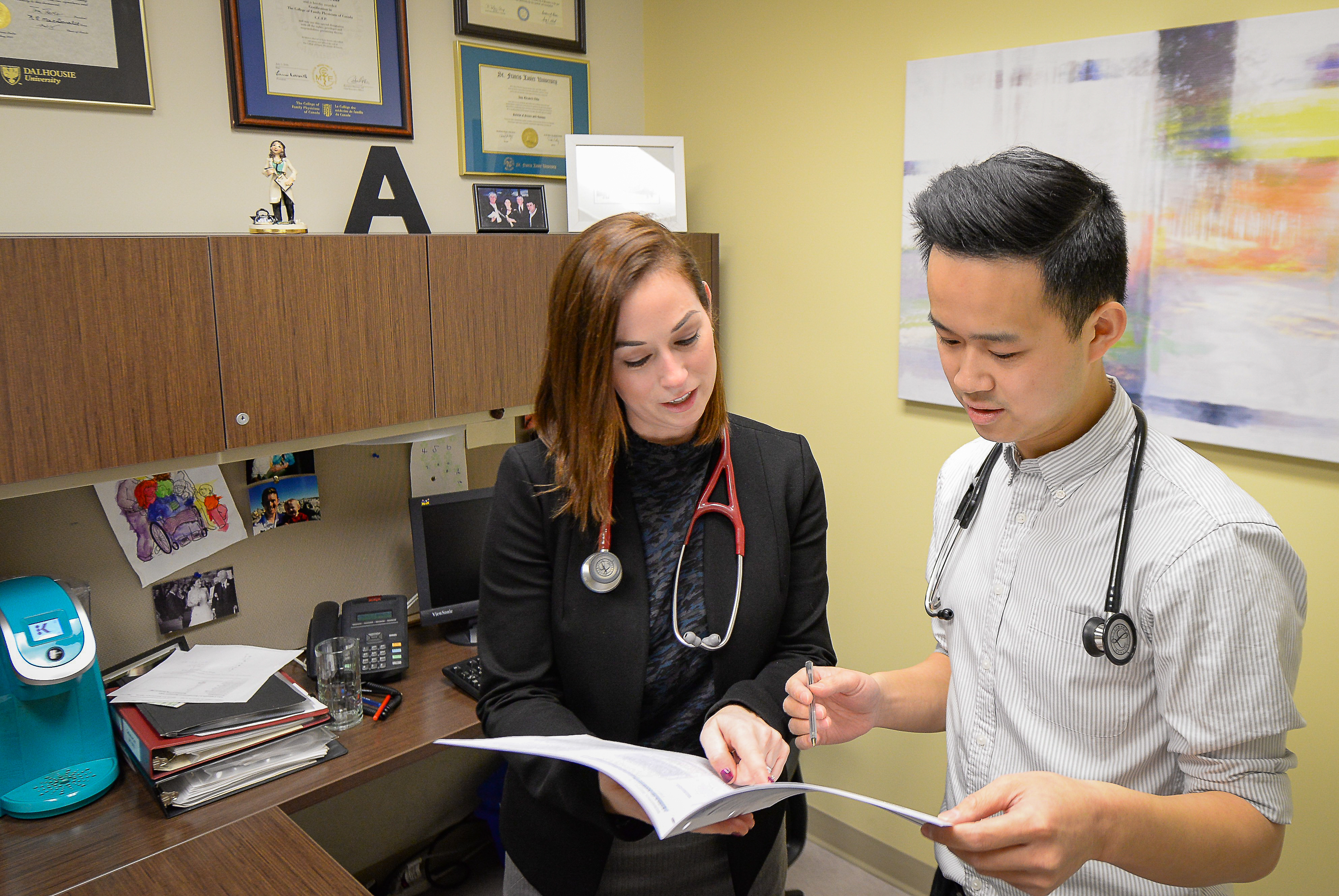Dal Family Medicine an early pioneer in CBME

While specialty residency programs at Dalhousie Medical School work quickly to adopt the competency-based medical education (CBME) model over the next few years, the Department of Family Medicine is already in the advanced stages of fine tuning and improving a CBME approach that it began more than a decade ago.
“Dalhousie Family Medicine was one of the earliest adopters of competency-based medical education in Canada,” notes Dr. Karlyne Dufour, director of the residency training program for Dalhousie’s Department of Family Medicine. “Our rollout has been slow, over a long period of time since about 2005.”
As Dr. Dufour recounts, the department’s former chair of evaluation, Dr. Tom Laughlin, was an early CBME enthusiast and member of the Canadian College of Family Physicians’ National Assessment Working Groups. As such, he played a highly influential role both at Dalhousie and Canada-wide.
“We started in 2005 by introducing ‘field notes,’ formal written feedback on performance that residents’ supervisors would complete with them at the end of each day,” says Dr. Dufour, who oversees the residency training program from Dalhousie’s family medicine teaching site in Moncton, New Brunswick. “The field notes provide residents with immediate feedback about what they’re doing well, what they need to work on, and what kinds of follow-up training will help fill the gaps.”
Research has proven that people recognize feedback better when it’s written. Verbal feedback just doesn’t carry the same significance or impact and can easily be forgotten or ignored.
“Compiling the field notes every day provides us with an excellent means of assessing the rotation as whole, when a resident reaches the end,” Dr. Dufour remarks. “We basically end up with a daily log that allows us to assess the resident’s readiness to progress to the next level, and provides a roadmap to each resident’s customized learning plan. This is so much more useful than the old system, which used to provide only 10 to 15 pieces of written feedback a year.”
Dr. Dufour acknowledges that it’s more work for clinical preceptors to prepare the notes and share them with the residents, but the results are so superior to verbal commentary, it’s more than worth it.
The fact that the feedback is narrative—rather than a tick-box form—is labour-intensive but provides a wealth of useful information.
“Tick boxes just tell us if a resident is or is not meeting expectations—there’s no richness there,” she says. “The narrative feedback we gather now provides very specific suggestions. This is especially important to our most accomplished residents who before may not have received much guidance as to how they advance their skills even higher. That system did not serve our best residents well.”
From its early beginnings with field notes, Dalhousie Family Medicine has gradually added new components to its CBME toolbox.
On Day One of their training, for example, family medicine residents receive an “objectives book” that details all of the knowledge and skills they will have to acquire over the two years of the program.
“The objectives book makes it crystal clear to the residents and the supervisors just exactly what needs to be covered, with more than enough advance warning,” says Dr. Dufour. “We often hear just how useful this is in terms of planning learning experiences and tracking progress.”
The department now is in the process of finalizing benchmarks for assessing residents’ progress toward their learning goals, at 6, 12, 18 and 24 months.
“We’re starting to work with the benchmarks now and residents and faculty members are all finding it very useful to know if a resident is on track or not,” she says. “It really helps to keep the teaching targeted to the learning needs of each resident.”
Dalhousie Family Medicine, along with Edmonton, were among the first to embrace CBME, and encouraged the rest of the country to follow suit. With leadership from early adopters and the College of Family Physicians of Canada (CPFC), the model has gradually been adopted, formalized, and re-structured nationwide in an ongoing iterative process over the past decade. By the end of 2015, all family medicine residency training programs in Canada had completed the shift to CBME, using the CFPC’s Triple C Competency Based Curriculum.
Most recently, CFPC launched CanMEDS-Family Medicine 2017: A competency framework for family physicians across the continuum
